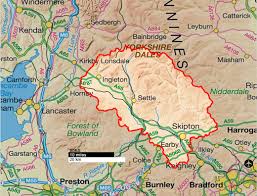记忆方法
1. crave => craven: 形容以恳求、渴求的方式求饶的那种状态。
2. 谐音“哭了问”-----问哭了,问都能问哭,是不是很胆小、懦弱啊。
3. cra- => cry (哭), -ven (拼音“问”) => 哭问,哭着问,小学生很胆怯,问老师都哭.
2. 谐音“哭了问”-----问哭了,问都能问哭,是不是很胆小、懦弱啊。
3. cra- => cry (哭), -ven (拼音“问”) => 哭问,哭着问,小学生很胆怯,问老师都哭.
中文词源
craven 胆小的
词源不详。可能来自词根crep, 破碎,劈里叭啦,词源同decrepit, discrepancy. 原指被打败的,后指被打怕的,因而胆小的。
英语词源
- craven
-
craven: [13] Craven originally meant simply ‘defeated’, and only gradually came to have the pejorative sense ‘cowardly’. It probably came from Old French cravante ‘defeated’, the past participle of the verb cravanter, which in turn came via Vulgar Latin *crepantāre from Latin crepāre; this meant ‘creak, rattle, crack’ (hence the English technical term crepitation [17]) but also secondarily ‘burst’ or ‘break’.
=> crepitation, crevice, decrepit - craven (adj.)
- early 13c., cravant, perhaps from Old French crevante "defeated," past participle of cravanter "to strike down, to fall down," from Latin crepare "to crack, creak." Sense affected by crave and moved from "defeated" to "cowardly" (c. 1400) perhaps via intermediary sense of "confess oneself defeated." Related: Cravenly; cravenness.
权威例句
- 1. A neighbour saw her talking with Craven.
- 一个邻居看见她在和克雷文交谈。
- 2. I had no doubt that the craven fellow would be only too pleased to back out.
- 我毫不怀疑那个胆小的家伙巴不得撒手退出呢.
- 3. They condemned the deal as a craven surrender.
- 他们谴责这笔交易为毫无志气的投降行为。
- 4. Jonathan Craven was the second person hired at Chesapeake Capital.
- 乔纳森?卡文是切萨皮克资金第二个聘用的员工.
- 5. No man wants to be thought a craven person.
- 没有人愿意被认为是懦弱的人.

